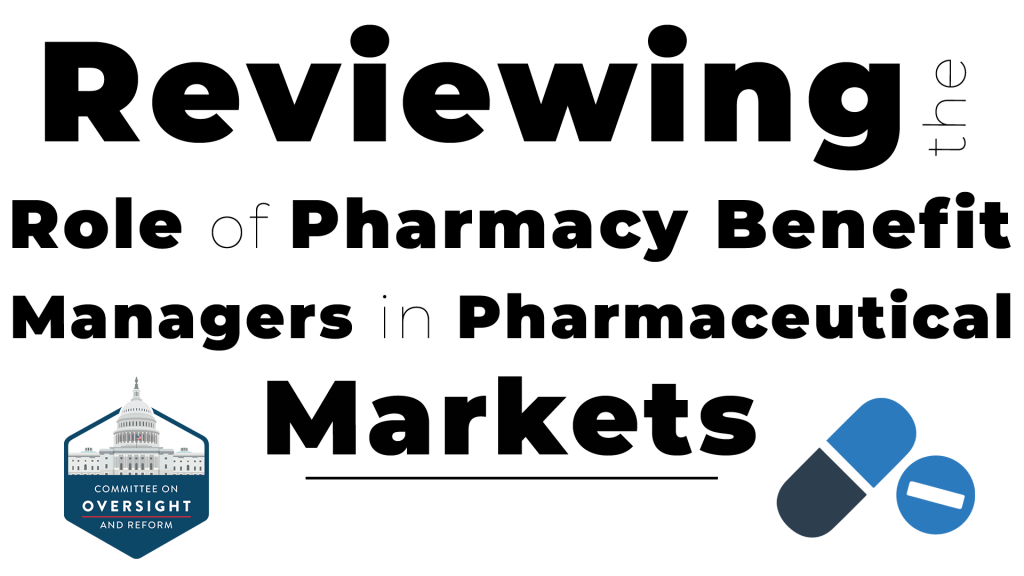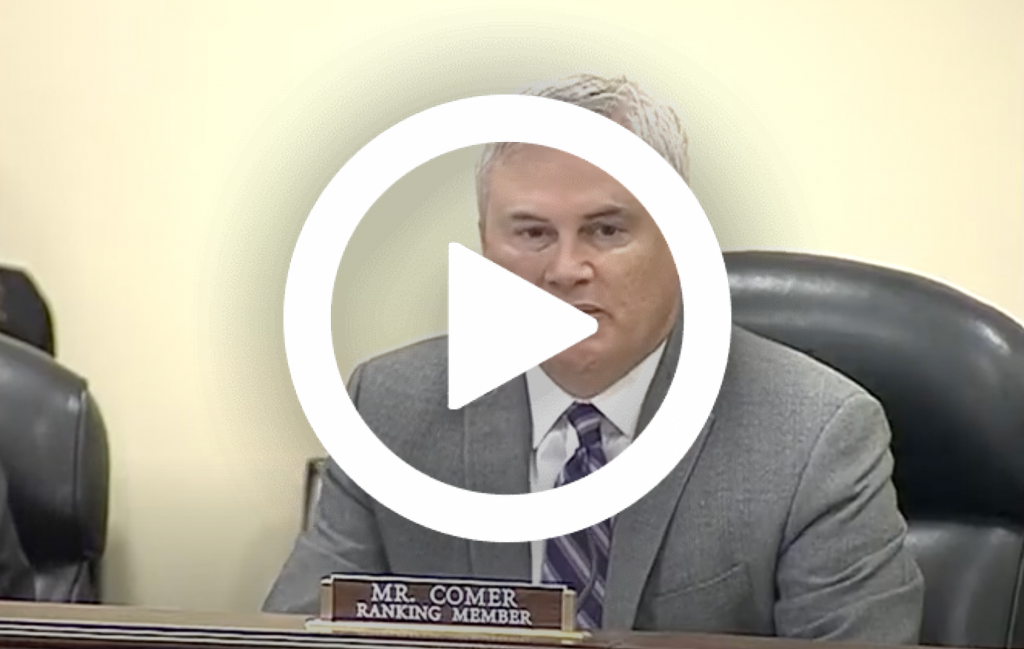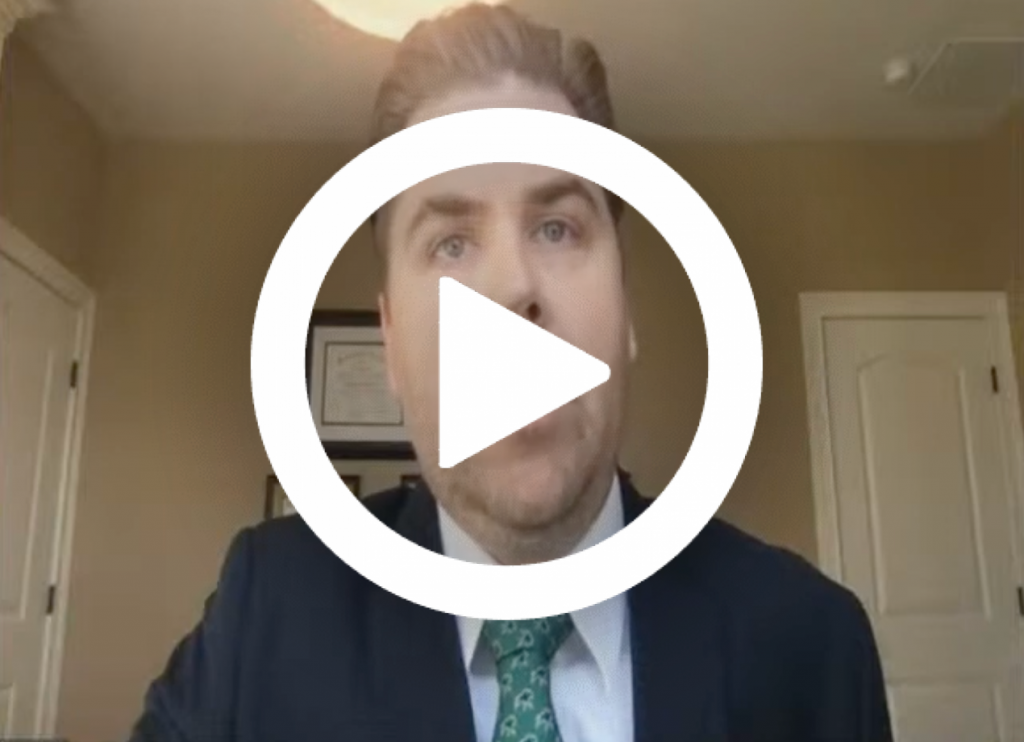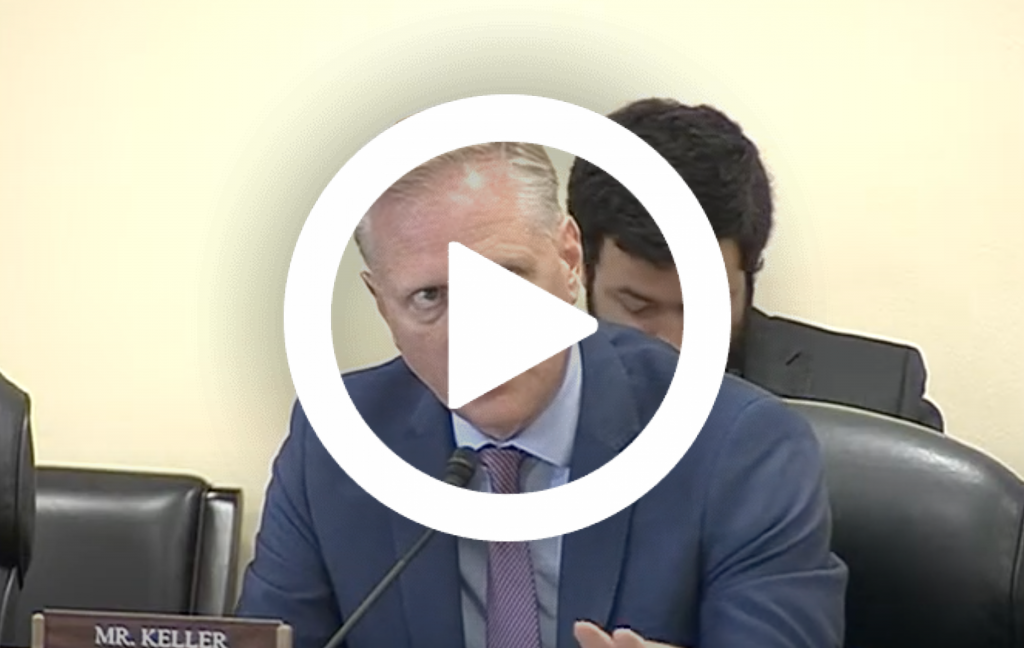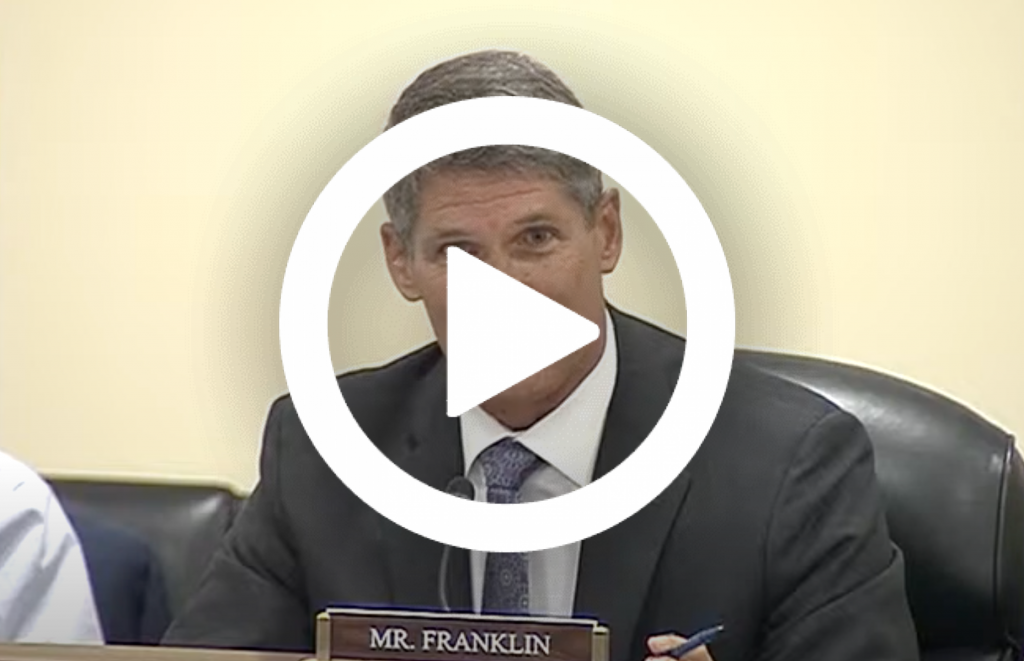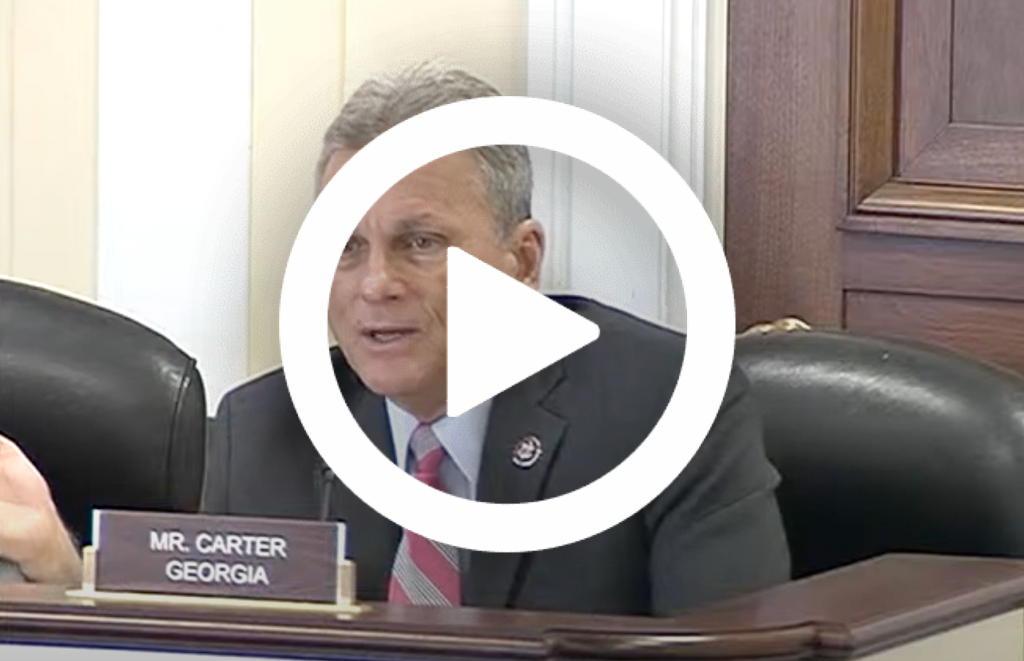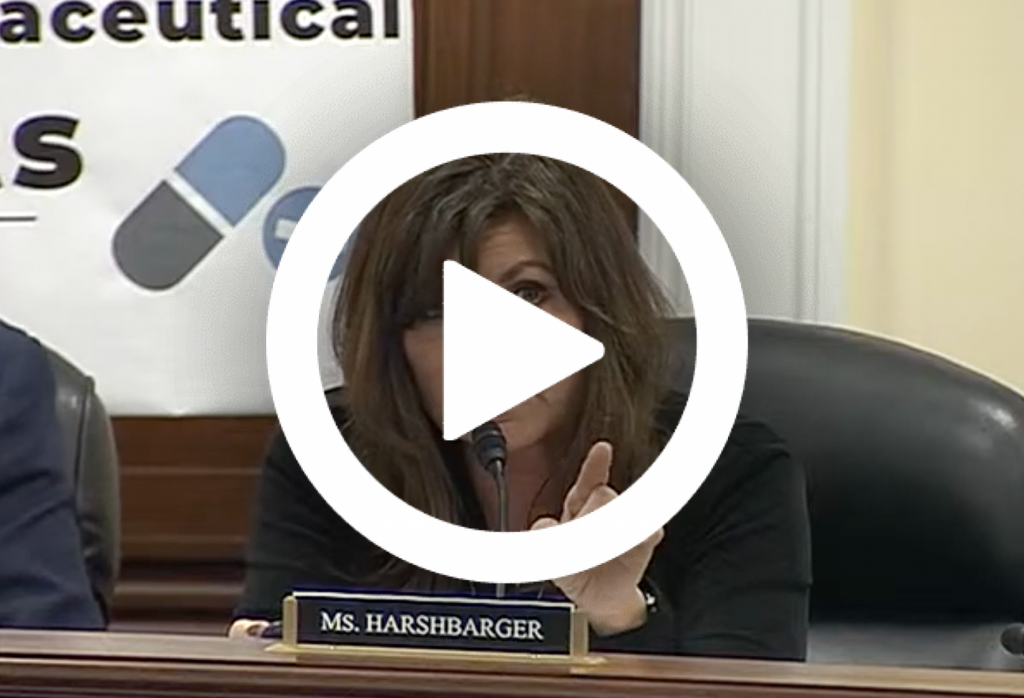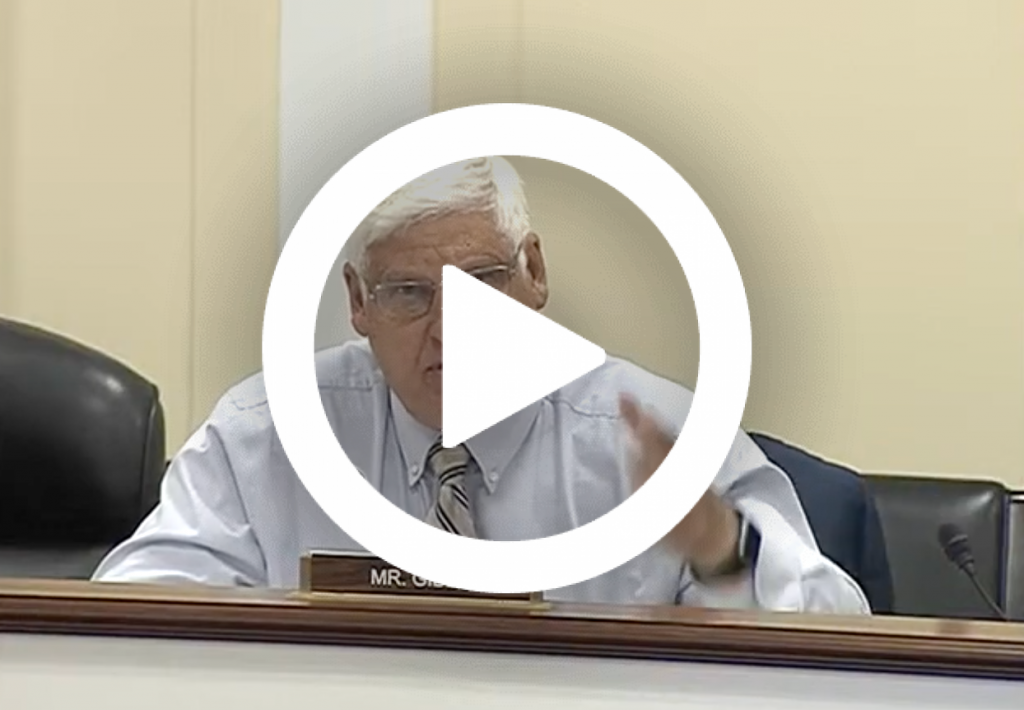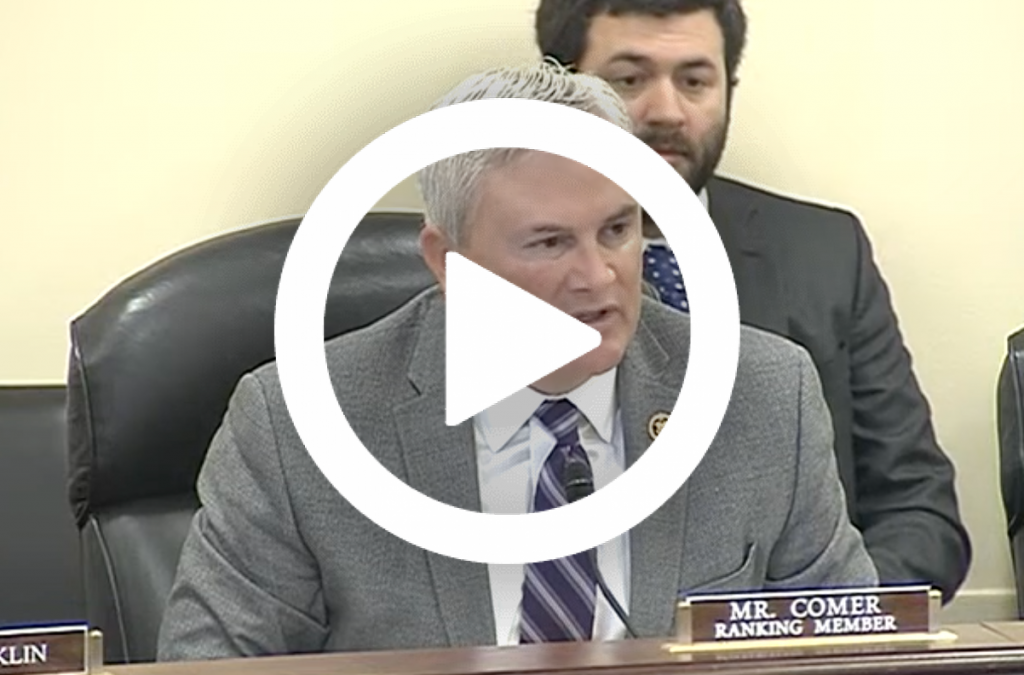PBM Forum Wrap Up: Greater Transparency, Further Congressional Review Needed to Lower Drug Prices
Forum explored PBMs’ anticompetitive tactics that are harming patients
WASHINGTON—Today, House Committee on Oversight and Reform Ranking Member James Comer (R-Ky.) and lawmakers held a forum entitled, “Reviewing the Role of Pharmacy Benefit Managers in Pharmaceutical Markets.” At the forum, the Republican lawmakers heard from experts, pharmacists, physicians, and PBMs about the role PBMs play in the rising cost of prescription drugs for Americans. PBMs are companies that manage prescription drug benefits for insurers, Medicare Part D drug plans, self-insured employers, and other payers, such as state Medicaid programs.
Key Takeaways
PBM consolidation in the marketplace and anticompetitive tactics are driving up prescription drug costs and harming patients.
- Dr. Jonathan Grider, the owner of Lake Cumberland Pharmacy in Russell Springs, Kentucky explained to lawmakers how PBMs’ anticompetitive practices harm independent pharmacies and the patients they serve in their communities.
- Dr. Erin Trish, Ph.D., the co-director of the USC Schaeffer Center for Health Policy & Economics and Assistant Professor of Pharmaceutical and Health Economics at the University of Southern California School of Pharmacy, testified hidden rebates allow PBMs to hide cost savings from patients and charge them more than their fair share.
- Dr. Madelaine Feldman, President of the Coalition of State Rheumatology Practices, outlined how healthcare plans contract with PBMs to construct formularies – the list of medications covered by a patient’s health insurance plan – and drive patients to more expensive drugs. She noted the “kickbacks” from drug companies to PBMs are “enormous” and often failed to be passed on to patients.
- Ted Okon, the executive director of the Community Oncology Alliance, testified PBMs’ dramatic consolidation has resulted in the top three PBMs controlling about 80 percent of the drugs insurance market in the United States. He recounted a story about a patient attempting to get a cancer drug for two months from the PBM. A week after being admitted to hospice, the patient finally got the drug they needed but died a week later.
- Ms. Tiffany Jones, the Vice President of Regulatory Affairs and Assistant General Counsel at SenderraRx, told lawmakers “every single PBM engages in steering every single day for every single patient,” referencing PBMs steering patients to pharmacies which they own and operate.
Greater transparency is needed to reveal how PBMs’ tactics are impacting the pharmaceutical marketplace.
- Antonio Ciaccia, the CEO of 46brooklyn Research, told the panel PBMs engage in a tactic called spread pricing, “where the PBM pays the pharmacy low, bills the plan sponsor high, and pockets the difference.” As a result, PBMs have been able to pocket three to six times the going rate for their services.
- Dr. Trish testified greater transparency is needed in the marketplace and PBMs should be required to share savings with consumers and plans.
Congress must further examine the role PBMs play in driving up prescription drug costs for patients.
- Dr. Feldman stated we need reforms to center the patient as the ultimate consumer to be served.
- Ms. Tiffany Jones told the panel far more oversight through law and regulation is necessary. She stated more protections need to be in place to provide a robust network of specialty pharmacies for patients, end the practice of patient steering, and prohibit pharmacy direct and indirect remuneration clawbacks.
- Dr. Trish told lawmakers PBMs need to share rebates with patients at the point of sale and action is needed to improve competition in the marketplace.
- Ranking Member Comer concluded the forum by calling for further review of PBM practices and anticompetitive behavior in the marketplace.
Member Highlights
Ranking Member Comer opened the forum by outlining PBM’s anticompetitive tactics and blasted Democrats for their failure to conduct oversight on this issue.
“Democrats have given a free pass to pharmacy benefit managers even though they play an outsized role in driving rebates and list prices of prescription drugs. Despite my request to Chairwoman Maloney to hold a hearing to examine the role of PBMs, Democrats have decided to limit their drug pricing investigation to only pharmaceutical companies leaving a significant void in in the Oversight Committee’s review of drug pricing and many unanswered questions.”
In response to a question from Ranking Member Comer, community Pharmacist Dr. Jonathan Grider explained how excessive fees charged by PBMs are squeezing out local pharmacies.
“Once this discussion is completed, I’ll be back at the pharmacy making PBMs more money.”
Rep. Fred Keller (R-Pa.) highlighted the role of PBMs in high prescription drug costs.
“Pharmacy benefit managers play a significant role in the drug pricing debate with certain anti-competitive tactics that raise patient costs at the pharmacy counter.”
Rep. Scott Franklin (R-Fla.) pointed out the absence of House Democrats at today’s forum.
“This is the most meaningful and relevant hearing we’ve had yet. And it appalls me that it’s only Republicans here today … Our system is broken … while we provide the best healthcare in the world and have the greatest research, we spend a staggering amount of money and don’t get our money’s worth.”
Rep. Buddy Carter (R-Ga.) got to the heart of the issue with PBMs.
Carter: They collect nearly half of what patients spend on prescription drugs. Can you justify the value of PBMs at such great cost?
Ciaccia: No.
Rep. Diana Harshbarger (R-Tenn.) and witness Dr. Feldman discussed PBMs’ tactics that steer patients to higher priced drugs.
Dr. Feldman: “Rebates do play into step therapy. Often times, I have to choose a drug that is more expensive before I can get to the less expensive drug … Take the example of the $10,000 metastatic prostate cancer therapy drug available on the formulary. You have to step through the $10,000 drug before you can get to the $350 drug…
“One self-employed, self-insured woman who has atrial fibrillation always paid the same price and signed the same contract every year. Now the drug costs $500 … that is because another manufacturer came in with a bigger price concession and kicked her drug to a higher tier.”
Harshbarger: “You know what that’s called? That’s called pay-to-play.”
Rep. Bob Gibbs (R-Ohio) discussed how lack of competition and price discovery has created trust issued with PBMs.
Ranking Member Comer called on the witnesses to provide solutions to reform PBMs and lower prescription drug costs for patients.
Dr. Trish: “To reduce or mitigate the concerns for patients, we need to share rebates with patients at the point of sale. It makes no sense that their cost sharing does not reflect the true net costs of these drugs and they are the ones suffering from paying higher out of pocket spending.”
Ms. Jones: “Transparency is the most important tool. Patients aren’t able to afford their drugs, independent pharmacies aren’t able to service those patients in the networks because PBMs are taking so much money … Where is the money going? Let’s also have regulations in place that don’t allow them to side-step the laws in place.”
To watch a recording of the forum, click HERE.
